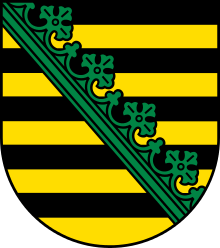Erich Zeigner

Erich Zeigner (17 February 1886, Erfurt – 5 April 1949, Leipzig) was Prime Minister of the German state of Saxony during the attempted communist uprising of 1923. After his refusal to capitulate to an ultimatum by then German Chancellor Gustav Stresemann on 27 October 1923 he was replaced by President Friedrich Ebert using the authority of Article 48 of the Weimar constitution.
Briefly the Streseman ultimatum outlined a dismissal of the KPD ministers within Saxony. Zeigner was replaced by a Reich commissioner two days later on 27 October.
In August 1921 Zeigner was Saxon Minister of Justice. On 21 March 1923 he became the third minister of the Free State of Saxony. After being on 10 October 1923 two members of the Communist Party to his government, he was on 29 October 1923 by President Friedrich Ebert (SPD) using the imperial execution deposed as prime minister. On 21 November 1923 was arrested for alleged corruption Zeigner in office and sentenced in the spring of 1924 to three years in prison, from which he was dismissed in August 1925 on probation
Zeigner signed the Urgent Appeal against the Nazi Party in 1932. He was arrested again in August 1933 after the Nazis came to power. He was acquitted at trial in 1935. Since then he had to live by doing odd jobs. 1939 re-imprisoned for a short time, he worked as a bookkeeper in Leipzig. After the failed attempt to assassinate Hitler on July 20, 1944 Zeigner and Stanislaw Trabalski as well as Heinrich Fleißner was kidnapped, and other Leipzig Solzialdemokraten was arrested in the Sachsenhausen concentration camp. In August 1944 he was arrested in Buchenwald concentration camp.
After his dismissal as Prime Minister, Zeigner became removed from the political circuit, and refrained from making any public appearances. Zeigner died of natural causes on 5 April 1949. It has been suggested that after his dismissal, fear for his life and the welfare of his family prevented Zeigner from either resisting his dismissal at the time or publicly denouncing the Nazi regime at a later date.
